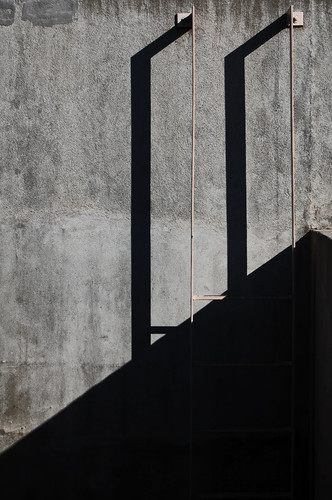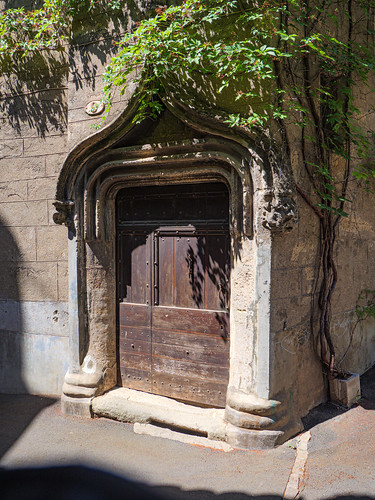Posts by author:
Chris Bertram
I have a piece in today’s Guardian, arguing that a combination of demographic changes and the political interests of the right risk creating a growing democratic deficit, in which more and more people on the territory of states have no democratic voice despite living, working and paying taxes there. I didn’t write the headline, which refers to Britain only, but in the text I also discuss cases like the DREAMers in the US.
Today, for the first time for over thirty years, I don’t have an employer. This is because I decided to retire rather than to face the unwelcome choice between online teaching and exposing myself to COVID in the classroom. I think, in fact, that I didn’t have enough “points” to get an exemption from face-to-face, despite being nearly 62 and having high blood pressure. Oh well, the issue is now moot. I shall miss being around students, chatting to them, helping them and getting the buzz that you get from a good classroom discussion. I won’t miss reading and marking student essays and exams though. Not one bit. I hope I’ve done a good job over the years, even though I feel I only learnt to teach well in the past decade (thanks to the direct and indirect influence of Harry).
There’s another reason to stop now though, which gives me a slight sense of vertigo, to be honest, and it involves “owning your own bullshit”. I’ll have a lot less income but I’ll have a lot more time. I’ve long believed that we, as a society (swap in your own society if you too live in a wealthy one) consume too much, engage in too much burdensome toil, and have too little leisure time to enjoy and indeed work on freely chosen goals. Capitalism has a built-in tendency to promote burdensome toil in the pursuit of consumption, but now I have a choice. Can I live with it? And will I make the most of it without the external discipline provided by the expectations of employers, colleagues and students? That’s a big test. But I hope to continue writing and publishing on many of the same topics I worked on up to now, and chiefly on migration and justice. I’m also happy to stand up on my hind-legs and talk to people about political philosophy and related matters, most of the time for nothing (invitations welcome!).
One thing I haven’t made my mind up on though: mode of publishing. People read books and people read blogs, so if you want to communicate your ideas then both are good formats (among others). But is there any point in continuing to send papers to academic journals? On the plus side, the peer review process induces a kind of discipline and quality control. On the other hand, many of the things that reviewers insist upon are pointless and detract from what you’re trying to say. And then there’s the small matter of the fact that nobody reads such papers. It is a source of lasting frustration that political philosophy as practised in academic journals is an activity that is almost entirely disconnected from the social and political life of the societies that surround it. I don’t mean that we ought to be getting down and dirty with Donald Trump or Brexit, but that we need to find ways of making the things we write about (should foreigners, or expatriates, have voting rights?, for example) cut through to public discourse. Making that argument in the pages of Philosophy and Public Affairs may not make enough of a difference, however good it is for an academic’s promotion prospects. But then, cutting through was one of the hopes I always had for Crooked Timber.
These are unpleasant times to be British, if you also happen to be of cosmopolitan disposition, if you value good governance, and if you think that government ought to be restrained by the law. Boris Johnson’s government has announce its intention to break international law “in limited and specific ways” as the UK’s negotiations with the EU over a future trade deal founder and we slide towards no-deal and international isolation. Henry explores some of the background to this in the “Northern Ireland backstop” over at The Monkey Cage. Johnson proposes to tear up parts of an international treaty, which he hailed as a good deal as recently as January and which was the basis on which he campaigned in the last general election. It was put into UK law by this Parliament, only a few months back, on a tight timetable with restricted opportunity for scrutiny. Various Tory politicians, including Johnson’s predecessor Theresa May, are unhappy with the prospect of breaking international law, arguing that nobody will have reason to trust the word of the British government ever again. The government’s senior legal civil servant has resigned over the issue and its implications for the rule of law. Critics point out that it weakens the UK’s ability to complain when other states, such as China, break their international agreements at will. (I assume that assurances will be given and any rebel Tories will back off, as they have done repeatedly over the past four years.) Johnson’s more extreme supporters, in places like Spiked,1 are already engaging in the familiar rhetoric of treachery to defame anyone who is critical of the UK’s “negotiating position”. Presumably Johnson is banking on Trump’s re-election, a further trashing of international norms and a friendly US government, because without that complete isolation beckons.
Meanwhile, the Home Secretary, Priti Patel, a member of the Cabinet that is happy to disobey the law, has characterized climate protestors as “criminals” and suggested that Extinction Rebellion could be classified as an organized crime group. She’s also been active around a confected “refugee crisis” concerning a few people who have crossed the Channel in dinghies (most of whom, it turns out are bona fide refugees) and the government is making noises about changing the law to make it easier to deport people, raising the possibility in the minds of observers that the UK could walk away from its obligations under the Refugee Convention and the European Convention on Human Rights. It is almost as an afterthought that I mention that because of the Johnson government’s mismanagement, the UK has one of the highest death rates in the world and a strategy for fighting the disease that seems to consist mainly of announcing “world beating” measures that fail to materialize. Meanwhile, because of COVID-19, rights to political protest have been severely curtailed,2 and organizers of gatherings face financial penalties of £10,000 each. If COVID doesn’t go away soon, then restrictions on our ability to resist the policies of the Johnson government will be in place when no-deal Brexit comes in January and the economic hit from COVID is compounded by food shortages and further mass job losses. Will the UK even survive all this? Pro-EU Scotland will want to secede as soon as it can, which might mean a hard border at Berwick-on-Tweed and a united Ireland would be one solution to the problems caused by the Conservative and Unionist Party’s Brexit outcome. I’d say “Hungary here we come”, but at least Hungary, as an EU member, continues to enjoy access to European markets.
-
Spiked is the website of the network of the former Revolutionary Communist Party, some of whose members are intertwined with Johnson’s administration. Johnson has recently decided to elevate one of its senior cadres, Claire Fox, in earlier times an enthusiast for IRA bombings, to the House of Lords.↩
-
It almost seems superfluous to recall, amid this litany of perfidy, that in the case of Johnson’s adviser or controller, the Rasputinesque Dominic Cummings, the legal restrictions on movement because of COVID didn’t apply. Another instance of one law for them ….↩











